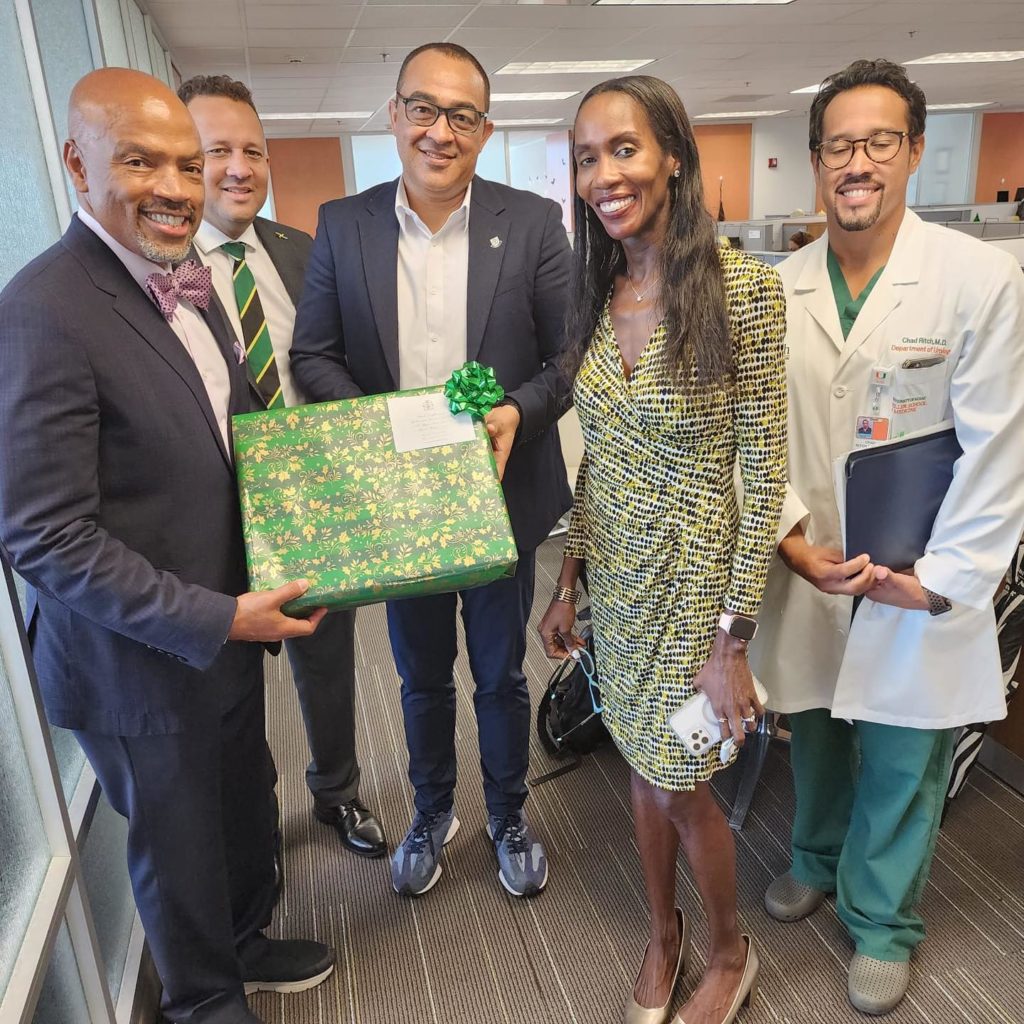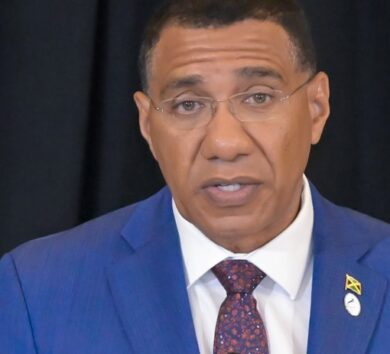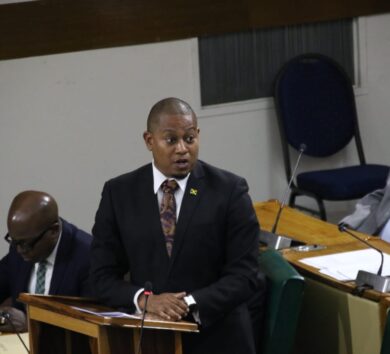

Durrant Pate/Contributor
The University of Miami’s Miller School of Medicine and UHealth have signed a memorandum of understanding (MOU) with Jamaica to improve its health infrastructure and that of the Caribbean through education and collaboration.
The Miller School is the first and, to date, the only US-based academic health care institution to sign an MOU with Jamaica’s Ministry of Health and Wellness.
The signing of the MOU advances and formalises the relationship, which the university has been building throughout the years with Jamaica and the Caribbean to provide education and health care services.
The MOU is a pioneering agreement which Health and Wellness Minister Dr Christopher Tufton hopes will lead to a tangible work programme. Dr Chad Ritch, associate director and associate professor of urology within the Desai Sethi Urology Institute, points out that the one-year MOU is aimed at opening direct lines of communication between countries and determining how best to share knowledge and resources.
He emphasises that there are many ways in which the collaboration might benefit Jamaica and the University of Miami Miller School of Medicine and UHealth.
Ritch and Tufton, architects of the MOU
Ritch, who is originally from Jamaica, worked directly with Tufton to orchestrate the MOU. “Dr Tufton has mentioned the need for a US academic health system with the strategic know-how that could provide input as they are rebuilding their health care infrastructure, while also enhancing the quality and capacity of health care in Jamaica and throughout the Caribbean,” Ritch explained.
According to him, “that’s one way in which UHealth and the Miller School could help, because we have a long history of building successful hospitals, speciality clinics, and educating medical professionals.”
Another way the Miller School would help is through education, including providing training for Jamaican and Caribbean health care staff at the Miller School, and orchestrating opportunities for volunteer health care staff from the US to provide as-needed, on-site, short-term care for the Jamaican Ministry of Health.
For the Jamaican Health and Wellness Minister, “the Miller School is a very prestigious academic institution, with the capacity to help us build our health care infrastructure. There are many reasons we are a good fit. There is a large population of Jamaicans in South Florida. And the Miller School is ideal logistically, only one plane ride away.”
Continuing, Dr Tufton declared, “it was only right that we found collaboration with the island that will allow with the technology or easy access to medical models, whether in training or in technical exchanges of one form or another. What we are hoping to achieve here with this agreement is the basis for a conversation that can be more specific.”

Mutual benefit
The health system at the University also stands to benefit from the collaboration explains chief operating officer for UHealth, founding director of Desai Sethi Urology Institute, and executive dean for Clinical Affairs at the Miller School, Dr Dipen Parekh. He says, “the partnership will help streamline our ability to care for international patients from Jamaica and the Caribbean when needed, and it will pave the way for our faculty and researchers to conduct research on diverse populations from those areas.”
He adds that it will eliminate many of the administrative hurdles that the Miller School and other researchers face when they attempt to conduct studies in a foreign country.
“This will allow us to concentrate less on red tape and more on clinical research that includes patients who are traditionally underrepresented in medical studies,” Dr Parekn asserts.







Comments